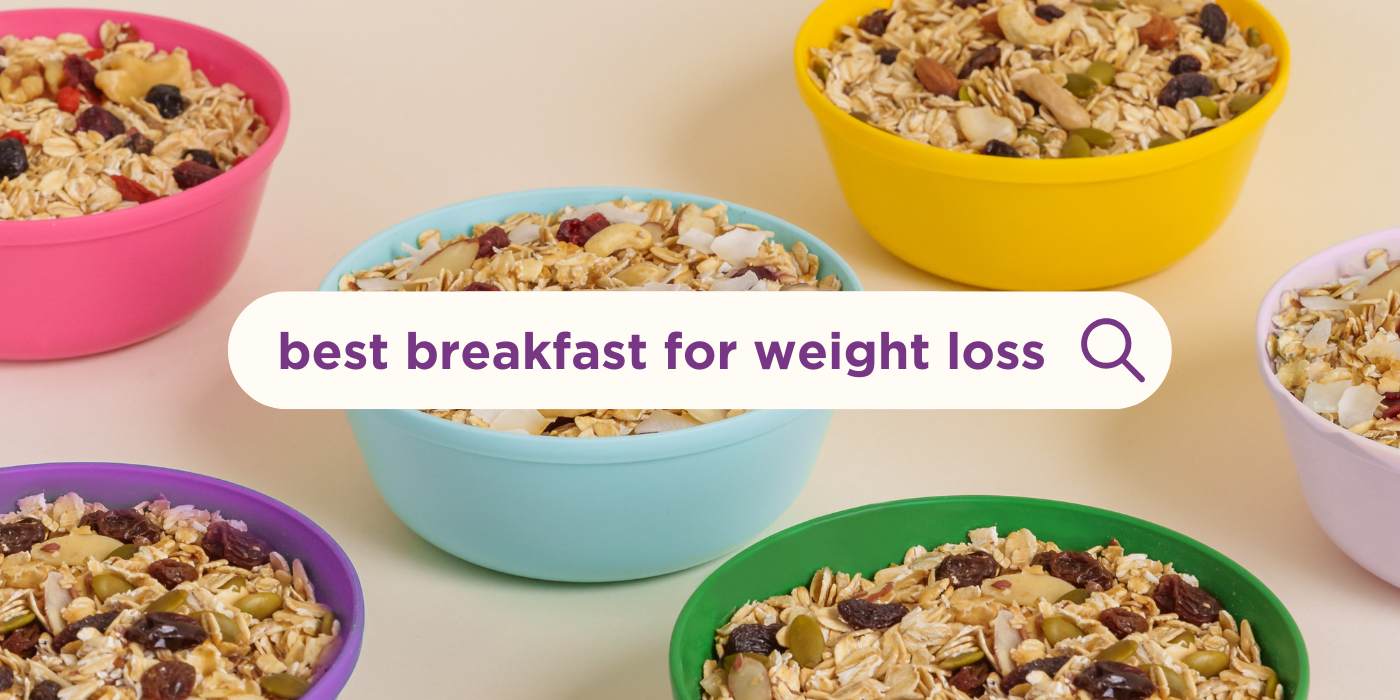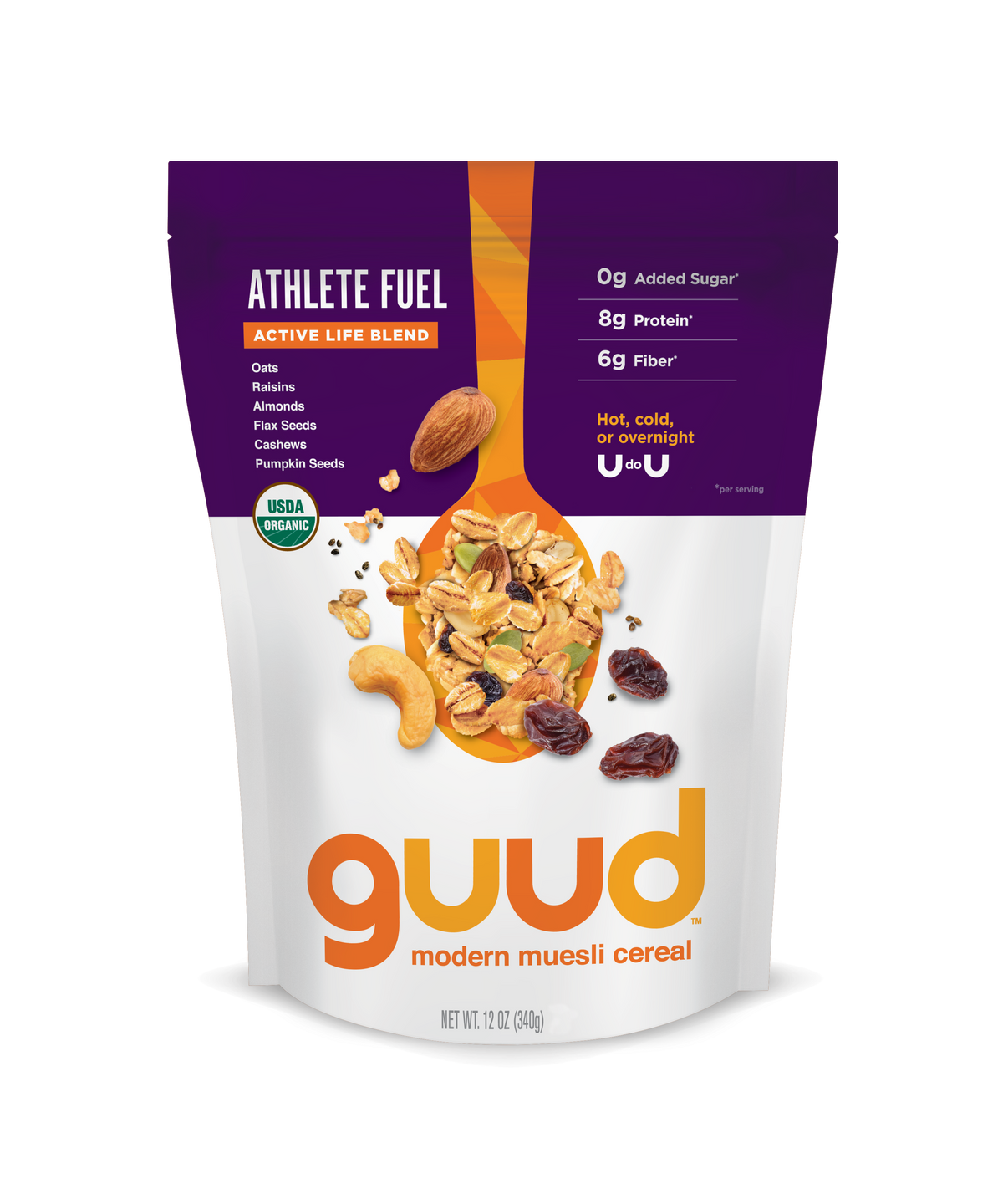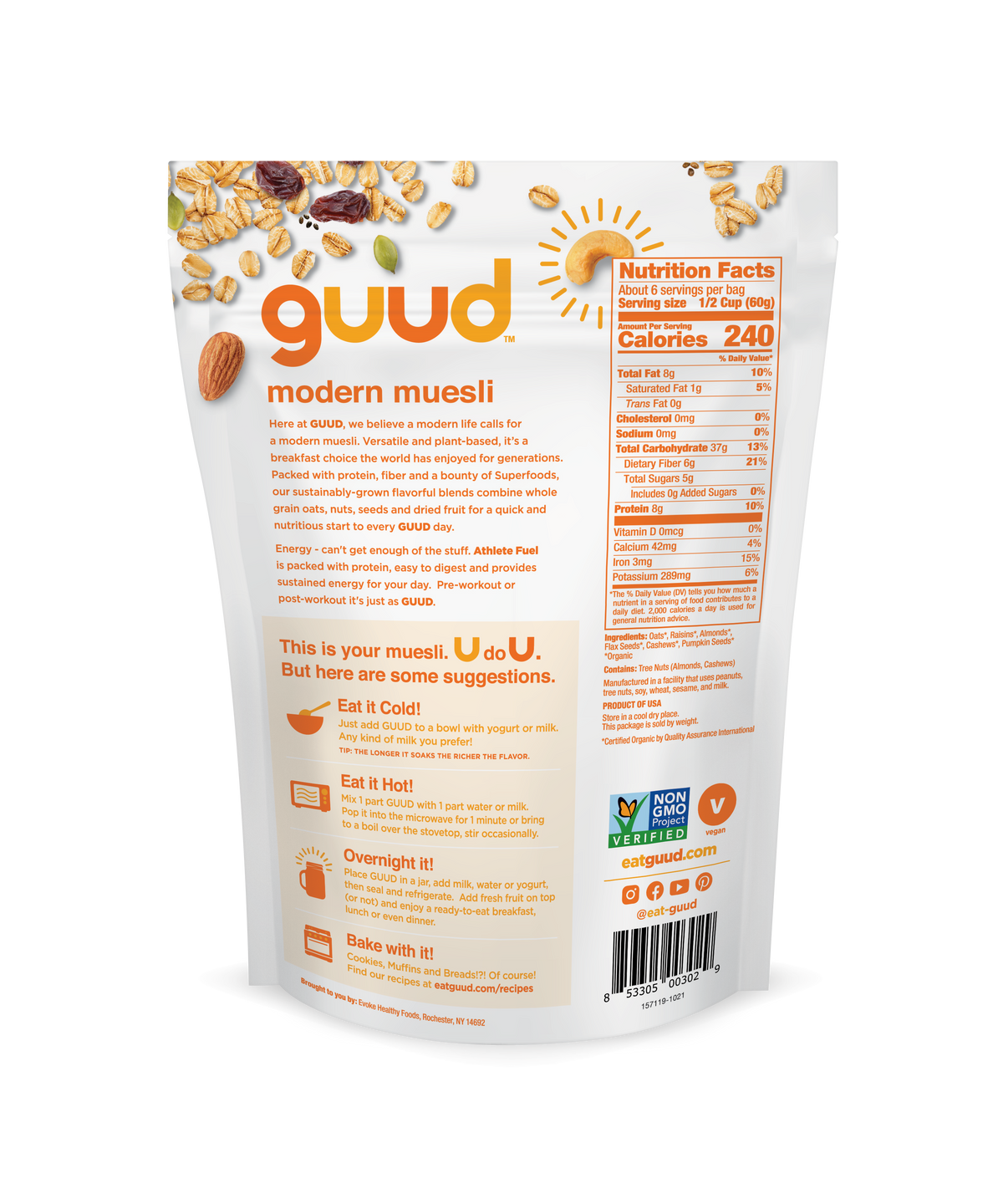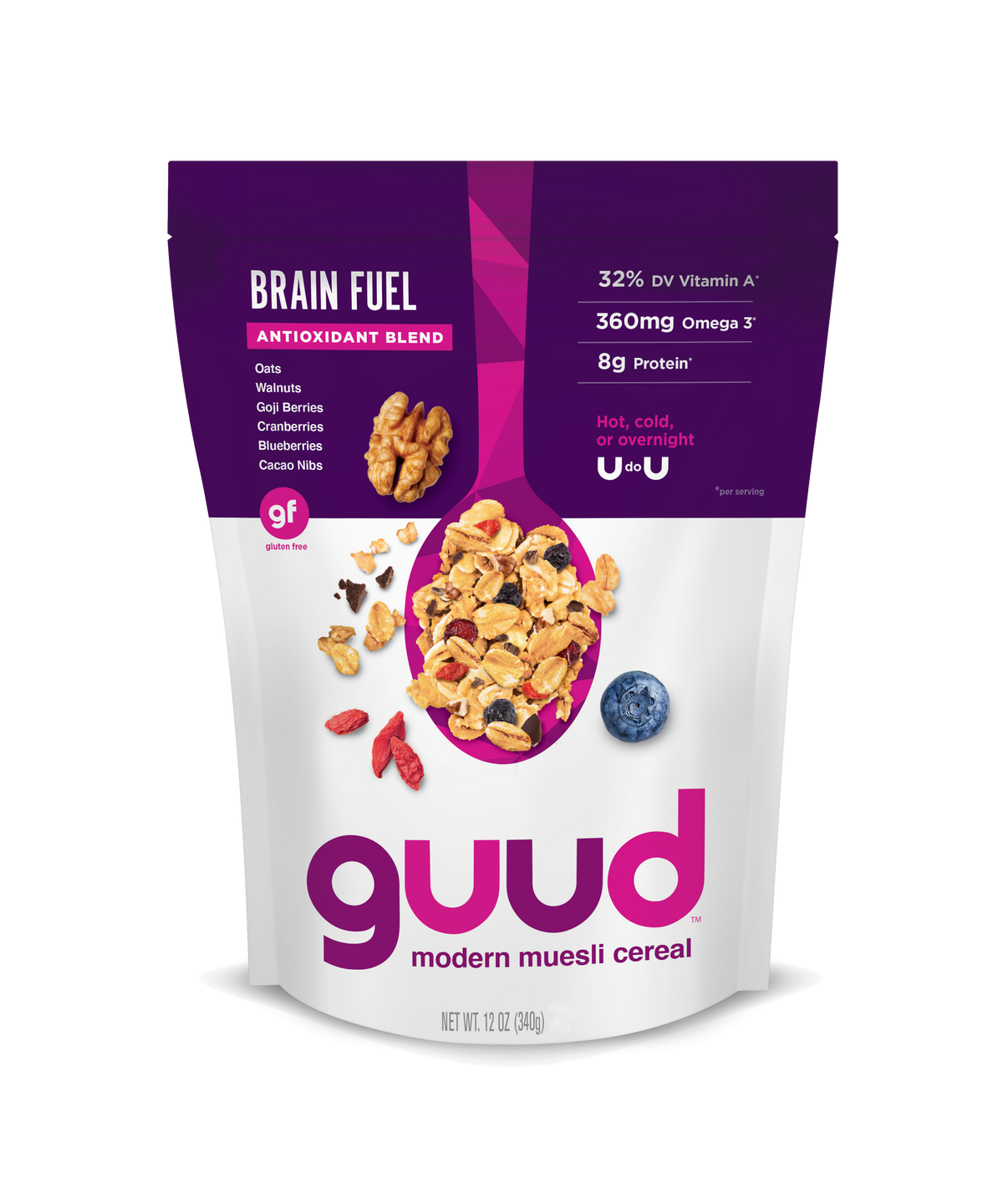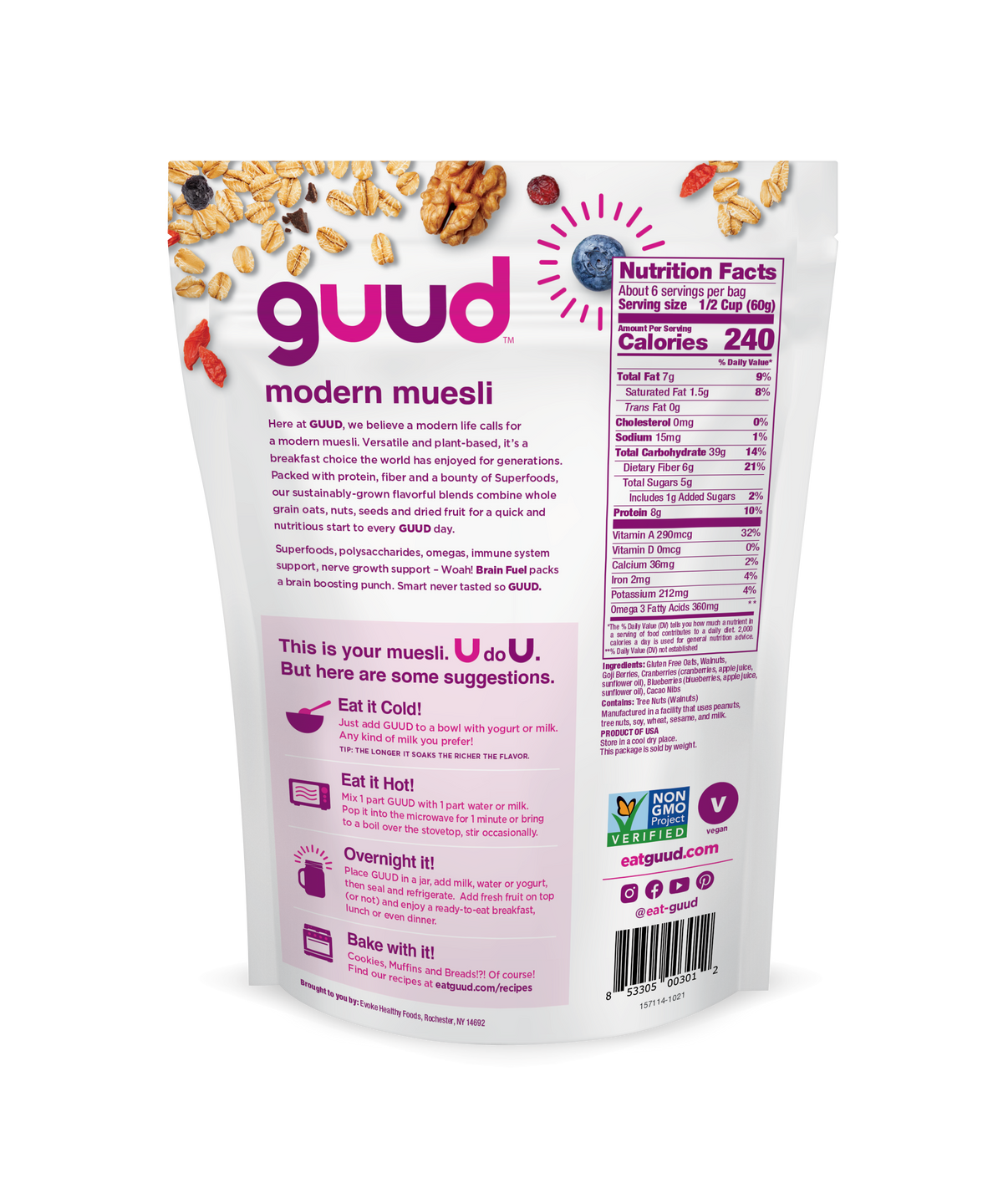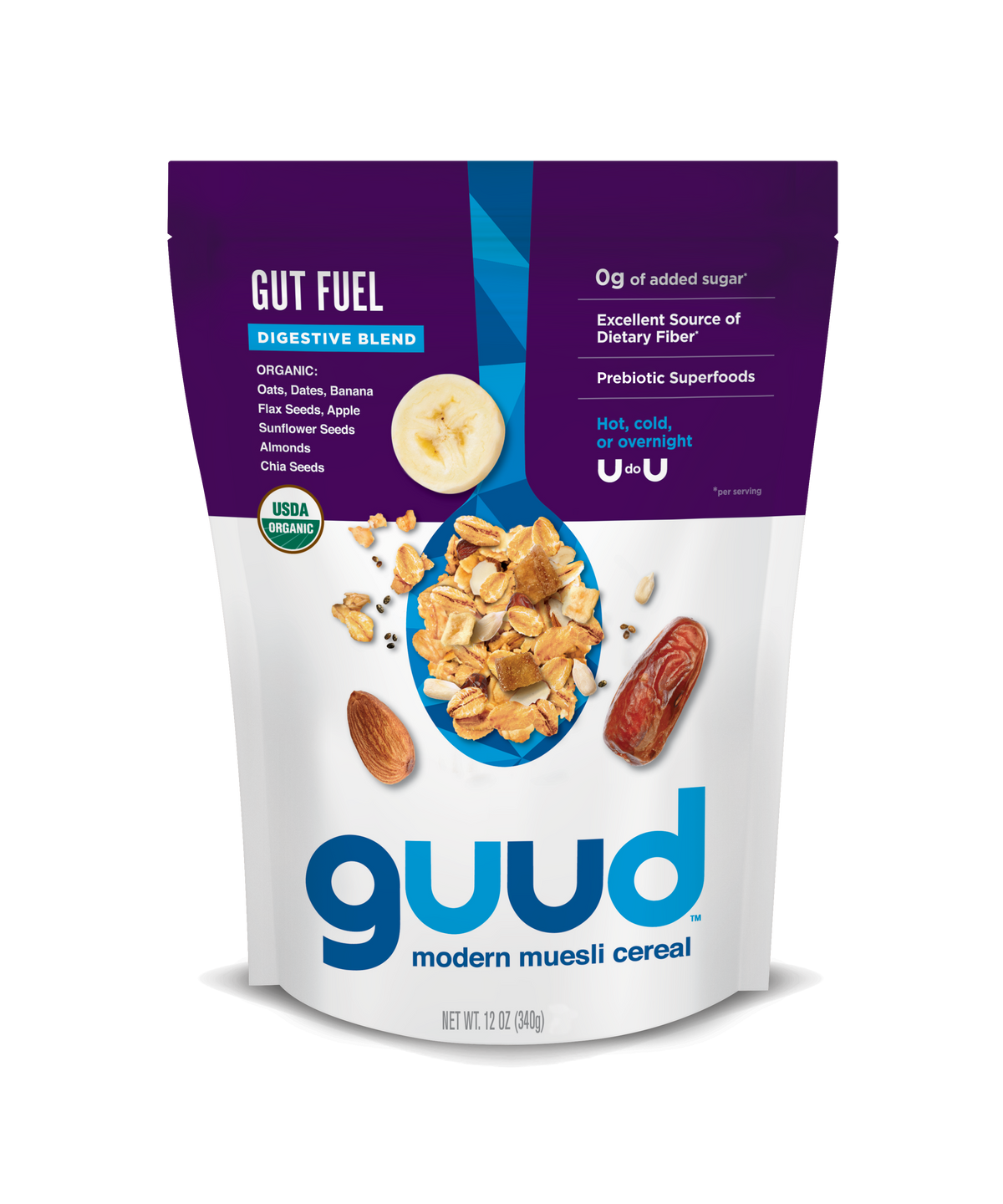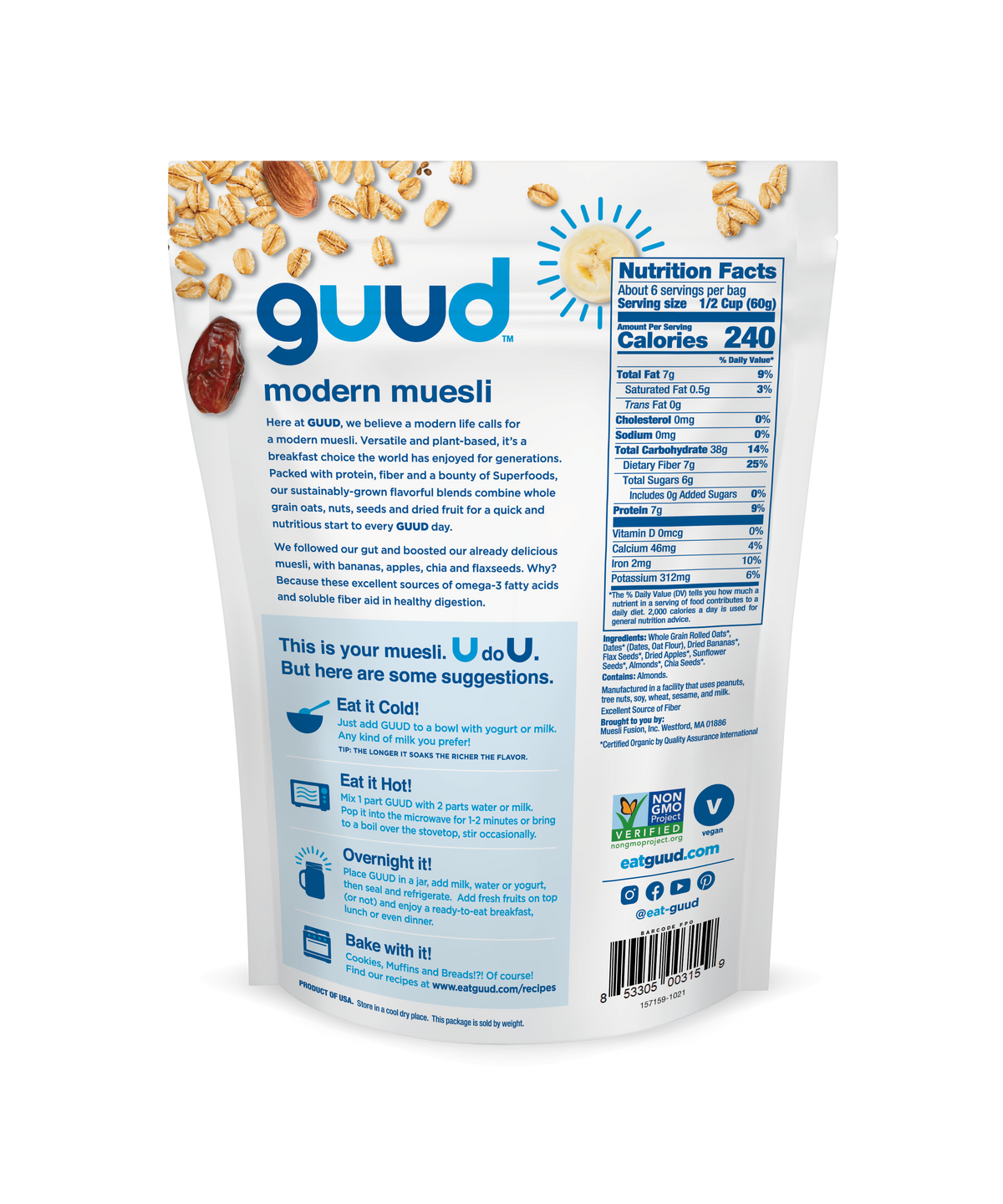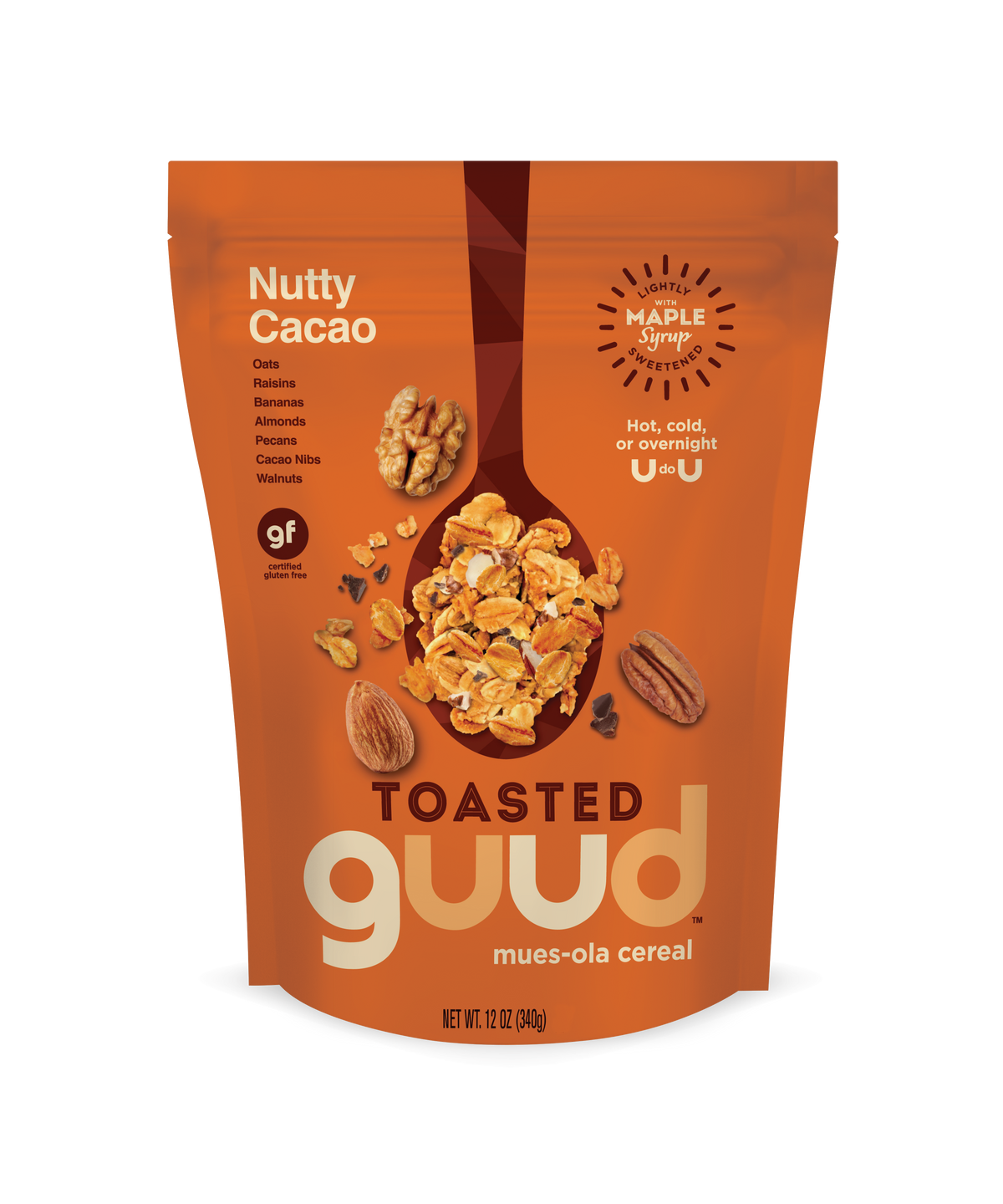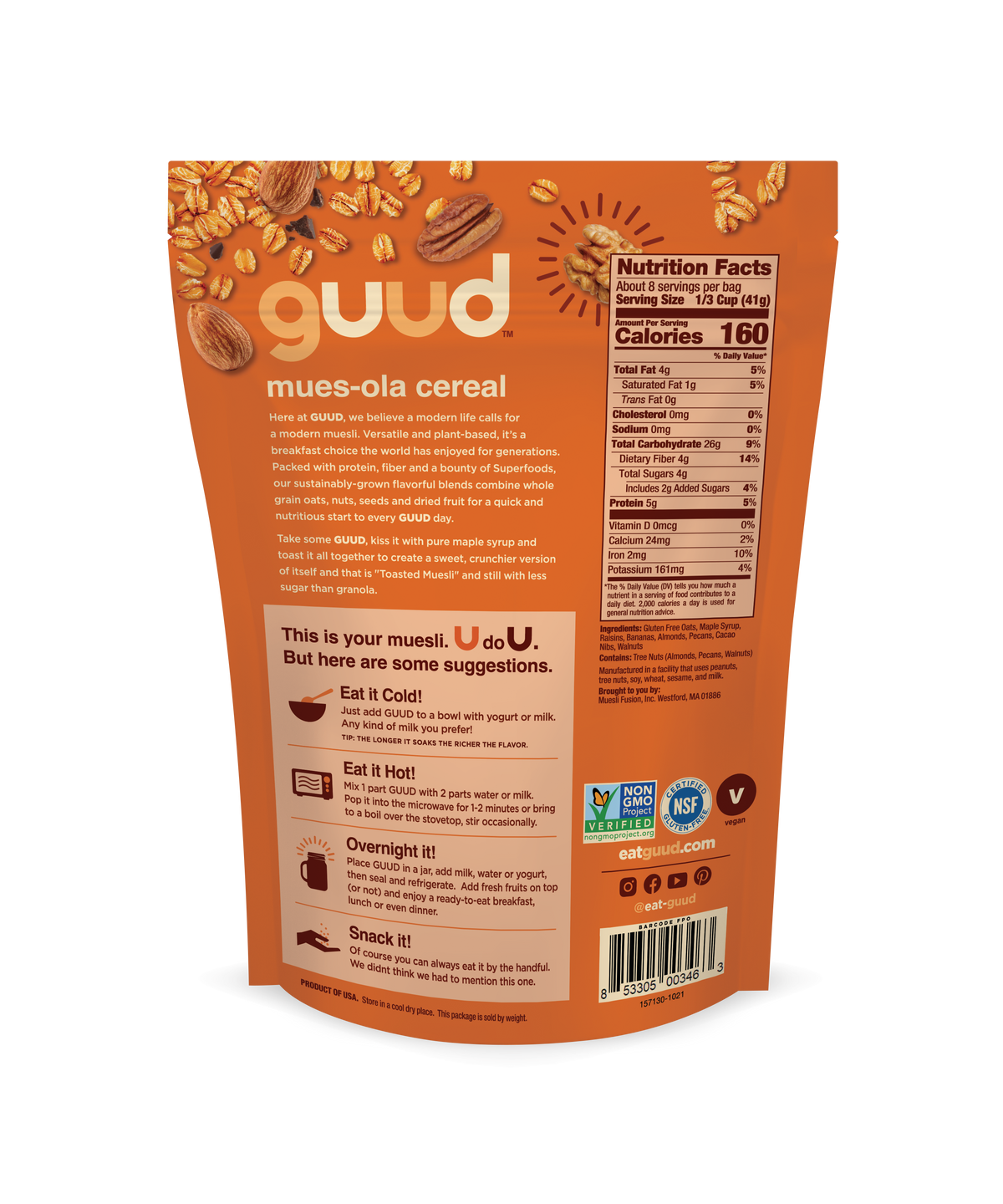Mom always said that a healthy breakfast is the best way to kickstart your day. She was onto something, considering that eating breakfast, often called "the most important meal of the day," is associated with health benefits such as having more energy and an easier time managing your weight.
With health trends such as intermittent fasting (which usually involves skipping breakfast) becoming more popular, it can be confusing to figure out whether we should or should not eat breakfast.

At GUUD, we're big fans of breakfast, and below we'll explain why. For example, we believe that a balanced meal in the morning helps to keep your appetite in check for the rest of the day, making it easier to make healthy choices.
The Fuel Your Body Needs After Sleep + Why
After a long night of rest and fasting (not eating anything), your body craves energy and nutrients.
The right breakfast has the important job of supplying you with the fuel you need to rise and shine. In other words, a solid breakfast can support better concentration, productivity, a generally perkier mood and more.

There's plenty of science available supporting the idea that breakfast is an important part of an overall healthy diet. Nutrition experts believe that people of all ages who regularly eat breakfast, especially one that includes unprocessed foods, benefit from this habit in many ways, such as:
- Boosting intake of essential nutrients, including protein, fiber, vitamins and minerals, such as calcium, B vitamins, folate and vitamin A.
- Having healthier blood sugar levels, since someone's blood sugar is lowest when they wake up after an overnight fast.
- Experiencing a decrease in appetite, which makes it easier to control one's calorie intake and choose nutritious foods throughout the day.
- Having enhanced protection against weight gain, as well as healthy cardiometabolic indicators, such as blood pressure and cholesterol levels.
- Having more mental and physical energy for work, school, exercise, etc.
- Experiencing improvements in cognition, such as greater attention span, memory recall and problem solving.
As one research article put it, "Scientific studies suggest that making a healthy breakfast is related to a greater intake of nutrients in the total of the day, better coverage of the nutritional recommendations and better quality of the whole diet. "
What exactly happens in your body when you eat breakfast?
The reason that eating breakfast sets you up for a successful day is because of how it impacts hormone production and metabolic health.
When you haven't eaten in many hours, your body produces higher amounts of "hunger hormones" including ghrelin, which signal to your brain and stomach that it's time to eat. When your body is pumping out hunger hormones you experience a drop in energy and often your mood takes a toll, hence the term being "hangry."

Skipping meals can also lead you to become overly hungry to the point that you make poor food choices once you do eat. This is one reason why breakfast skippers are thought to be at increased risk for weight gain and obesity.
Low blood sugar also results from not eating breakfast, which can lead to fatigue, weakness, nervousness and poor concentration. Eating a balanced meal in the morning—one with protein and without lots of added sugar— brings your blood sugar back up within the normal range, helping to prevent cravings and a crash in energy later on.
Finally, a healthy breakfast can be a great source of nutrients that many adults and children are lacking, such as soluble fiber (found in whole grains such as muesli and oatmeal) which helps to support digestion and reduces cholesterol.
How to Build a Healthy Breakfast
The most filling breakfasts include a combination of protein, healthy fats and complex carbs/fiber.
This is exactly why muesli makes an excellent nutritious breakfast: it's beaming with whole food ingredients including rolled oats, nuts, seeds and dried fruit.
In fact, there's research that shows a link between healthier body weights and eating foods such as hot and ready-to-eat cereals, especially when they're paired with protein-rich milk and fiber-rich fruit.

All of our GUUD muesli formulas contain only between 1 to 2 grams of added sugar per serving (all from the fruit!), but they don't sacrifice on taste. We include flavorful ingredients such as almonds, cashews, dried berries, raisins, coconut and cocoa to make each bowl naturally delicious, all with less than half of the sugar found in most granolas.
In order to fill you up in the morning and boost your nutrient intake, we recommend trying muesli in some of these recipes:
- Try muesli either hot or cold, such as the same way you'd make oatmeal. For extra staying power, add some nuts or almond butter which provide extra protein and healthy fats.
- Combine muesli with your favorite milk, ideally one that's free of added sugar and contains protein, such as organic milk, unsweetened soy milk or pea milk.
Add muesli to homemade baked foods such as oat/granola bars, muffins or hearty breads. Muesli even makes a great addition in cookies, cakes and "energy balls."

Other good options for a healthy breakfast include: 1-2 eggs cooked with veggies and whole grain toast; a smoothie made with protein powder, greens such as spinach and fresh or frozen fruit; or a yogurt bowl topped with seeds, nuts and berries.
See? Turns out Mom really was right about breakfast after all.


